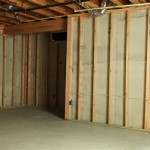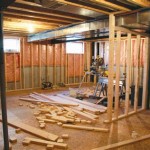What Is a Good Humidity Level for Your Basement Floor?
Basements, often considered the "underbelly" of a home, can be susceptible to various issues, one of which is excessive humidity. Understanding the optimal humidity level for your basement floor is crucial for maintaining a comfortable and healthy living space. A well-regulated basement environment can prevent mold growth, wood rot, and other problems that can significantly impact your home's structure and your family's well-being.
Factors Affecting Basement Humidity
Several factors can influence the humidity levels in your basement.
- Climate: The climate in your region plays a significant role. Humid climates naturally contribute to higher basement humidity levels.
- Soil type: Clay soil, known for its ability to retain moisture, can lead to elevated basement humidity.
- House construction: Older homes, especially those built without proper moisture barriers, are more prone to higher humidity levels.
- Ventilation: Inadequate ventilation can trap moisture in the basement, contributing to high humidity.
- Water intrusion: Leaky pipes, foundation cracks, or improper grading can allow water to seep into the basement, increasing humidity.
- Lifestyle habits: Activities like showering, cooking, and drying clothes can contribute to moisture buildup in the basement.
Ideal Basement Humidity Levels
While there isn't a universally agreed-upon "perfect" humidity level, aiming for a range of 40-60% is generally recommended for most basements. Maintaining this range can help create a comfortable and healthy environment while minimizing the risk of moisture-related issues.
High humidity levels, above 60%, can create a breeding ground for mold, mildew, dust mites, and other allergens. These can lead to respiratory problems, allergies, and even serious health complications. Excessive moisture can also cause wood rot, warping, and damage to furniture and belongings.
On the other hand, extremely low humidity levels, below 30%, can lead to dry air, which can cause irritated skin, dry eyes, and static electricity. While this is less of a concern in basements, maintaining a balanced humidity level is crucial for overall comfort and well-being.
Tips for Managing Basement Humidity
Here are some practical tips to help you manage the humidity levels in your basement:
- Improve ventilation: Ensure proper ventilation by opening windows and using exhaust fans, particularly after showering or cooking.
- Dehumidifier: Use a dehumidifier to remove excess moisture from the air. Choose a model that is appropriate for the size of your basement.
- Address water intrusion: Repair leaky pipes, seal foundation cracks, and ensure proper grading around the house to prevent water from entering the basement.
- Moisture barrier: Install a moisture barrier on the basement floor to prevent moisture from seeping up from the soil.
- Insulation: Insulate the basement walls and ceilings to prevent condensation from forming.
- Maintain a dry environment: Limit moisture-producing activities in the basement, such as drying clothes or storing damp items.
Regularly monitoring your basement's humidity levels is essential for preventing problems. Use a hygrometer to measure the humidity and adjust your strategies as needed. A healthy and comfortable basement environment can make a significant difference in the overall well-being of your home and family.

What Is The Ideal Basement Humidity Level Epp Foundation Repair

Basement Humidity Levels Variations Impacts And Controling

How To Lower Your Basement S Humidity Level

Basement Humidity Levels Variations Impacts And Controling

How To Know Your Basement Humidity Level Rescon Solutions

Managing Ideal Indoor Humidity Levels All Year Round

What Is The Ideal Basement Humidity Level Epp Foundation Repair

Basement Humidity Levels Variations Impacts And Controling

What Is A Good Humidity Level For Basement Michigan Basements

How To Achieve An Ideal Basement Humidity Of 30 50
Related Posts







